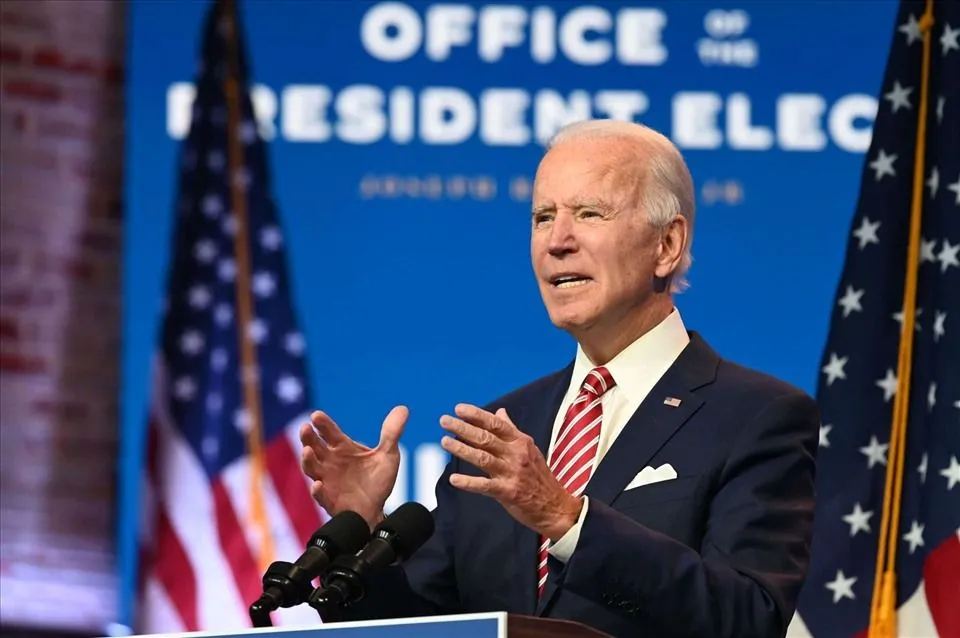
Deeply divided
Biden’s calls for harmony clearly resonated with a large share of voters. But the 2020 election also provided ample evidence of how deeply divided the country is. More than 72 million Americans voted for four more years of Trump, the second-highest vote total in history behind Biden’s 76 million. Support for the two candidates was split along stark lines based on race, age, income, geography, religion and other factors.
Polarization in the U.S. didn’t start with the Trump presidency. But research suggests that in recent years the political divisions are becoming increasingly personal, driven by the idea that one’s party affiliation is a moral choice, rather than a matter of policy disagreement. In this context, political divisions are guided as much by antipathy for the other side as they are by support for one’s own party.
Over the past 40 years, Americans have become increasingly discontented and distrustful, said Lee Drutman, a senior fellow in the Political Reform program at New America. This is because the United States is only interested in political decisions at the national level, but neglects the micro-management at the local level.
Therefore, it is difficult for many MPs to represent real interests of the locality to take advantageous positions in the National Assembly. Furthermore, the clear division of the Republicans and Democrats in the “urban/rural” and “liberal/conservative” regions also directly reduces the effectiveness and significance of elections as the ways to solve social problems.
Extreme trends
A worrying has appeared recently: Extremism seems to growing in America. The BLM protests, which fight for the blacks, have caused panic across America as they gradually turned into riots and looting.
Meanwhile, the press recorded revenge attempts against Trump's supporters. An entity called the “Trump Accountability Project” went further, threatening economic and professional retaliation against Trump supporters. The group posted this message on its website: “We should not allow the following groups of people to profit from their experience: Those who elected him. Those who staffed his government. Those who funded him.”
Former Obama campaign spokesman Hari Sevugan called for revenge against Trump supporters on Twitter, writing, “Employers considering them should know there are consequences for hiring anyone who helped Trump attack American values.”
Former Labor Secretary Robert B. Reich called for a “Truth and Reconciliation Commission” that would “name every official, politician, executive, and media mogul whose greed and cowardice enabled this catastrophe.”
The thirst for the blood of Trump supporters isn’t limited to Democrats. A never-Trump group of Republicans, The Lincoln Project, has vowed to destroy law firms that dare to represent President Trump. The group announced on Twitter Tuesday that it was launching an advertising campaign against the law firms Jones Day and Porter Wright Morris & Arthur. The group even urged “doxxing” of firm employees.
As Rep. Justin Amash, L-Michigan, put it, “This is a horrible idea. No matter what you think of Donald Trump or the GOP, nobody should target lawyers for representing clients. Our justice system depends on access to legal representation, even for those who may seem undeserving.” This ad-hoc reign of terror is absolutely unacceptable in a free country.
Particularly concerning is the effort to demonize and destroy “those who elected” President Trump and “those who funded” the Trump campaign. More than 70 million American citizens voted for Donald Trump for president in this election. Will they be identified by their party registration? Will their employers face attacks on Twitter and demands for their firing? Will party registration become a dangerous activity that could destroy a career or a family’s economic security?
Under U.S. campaign finance laws, the names, addresses and employers of political donors are public. The threat to retaliate against “those who funded” the Trump campaign is enabled by campaign finance disclosure requirements. California also makes public the identity and employer of political donors to state and local campaigns.
The obvious reaction that any risk-averse person would have to these threats is to desist from all political activity or advocacy. Doxxing individuals and boycotting companies over political disagreement is coercion, not persuasion.
Not an easy task
As sincere as Biden’s efforts to unite the country may be, many argue that they are likely doomed from the start. In order for Biden’s message to resonate, it must first be heard. Partisan news and social media have resulted in information bubbles that can be difficult for even the president to penetrate. Trump continued refusal to accept the results of the election will also mean that many in the GOP base won’t see Biden as a legitimate president.
Biden will also have to contend with congressional Republicans, who have little political incentive to cooperate with Democrats, especially if they maintain their Senate majority. With so many important issues that will need addressing at the start of Biden’s presidency, the two parties may be primed for a series of bitter legislative battles over how best to solve them. Biden will also face pressure from many Democrats to take a more aggressive line on policy, which could inflame tensions further.
Others take a more optimistic view. The simple act of replacing Trump, who stoked conflict constantly, with a less bombastic personality can go a long way toward easing tensions in the country. Biden also has the opportunity to align the nation behind the common mission of overcoming the coronavirus pandemic and the resulting economic fallout, two crises that have affected Democrats and Republicans alike. During his time as a senator and vice president, Biden built a reputation as one of Washington’s great dealmakers. If anyone can help Democrats and Republicans in Congress find common cause, it’s Biden, some argue.




















